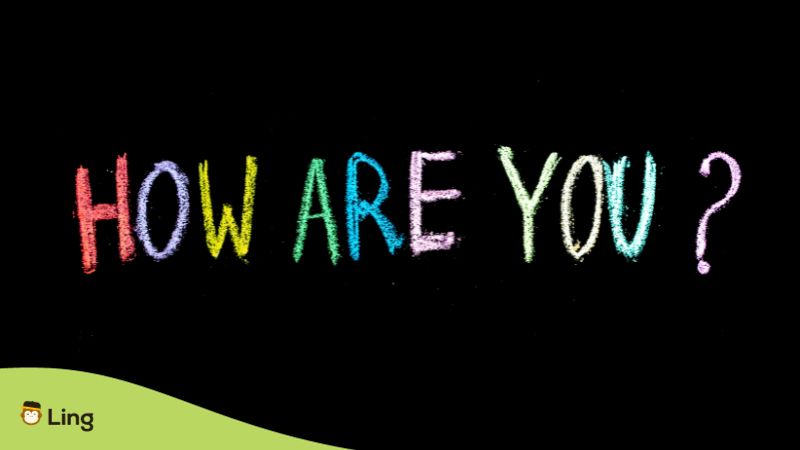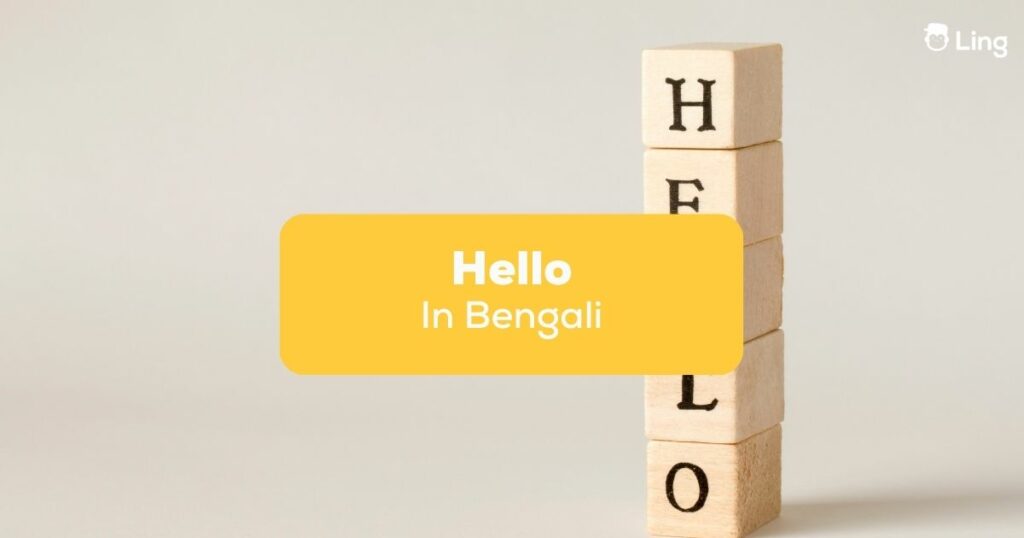Saying hello can really bring us to different places, don’t you think? It’s probably the easiest and most efficient way to create new bonds and connect with other people. If you’re planning to visit countries like West Bengal and Bangladesh, then learning how to say hello in Bengali can come in handy.
You know, saying hello isn’t just about the words; it’s the little gestures that connect us. Like in Bangladesh, guys often go for a good old handshake when they meet, while women usually give a graceful nod to acknowledge someone.
These simple acts bring people together, wherever they are in the world. So, if you want to show respect and make a good first impression upon meeting locals, learning these ways and gestures to say hello in Bengali could really do some magic.
Ways To Say Hello In Bengali
There are plenty of common phrases used to connect with other people in Bangladesh and West Bengal. However, the most typical ones that are used on a daily basis are words synonymous with “Hello.” To easily create great relationships with locals, try practicing these greetings today!

1. Namaskar
If you’re looking to show some genuine respect to an elder, check out this way to say “Hello.” It’s kinda like our “I respect you” in English. The cool thing is, you can drop it anytime—morning, noon, or night. It’s a nifty swap for the usual “good morning” and such. Give it a go!
2. Salam
Fun fact, most people from Bangladesh practice Sunni Islam, while locals from West Bengal are Hindu. If you want to politely greet a Muslim, you can always say “Salam” to send good vibes or peace to the receiver of your message. It’s quite similar to saying hello, but it’s likely more appreciated by certain religious groups.
3. Hi/Hello
You know those two greetings you hear just about everywhere? They’re kind of like the starter pack when you’re diving into English, and they are also used by Bengali people. They’re super easy, quick, and give off a friendly vibe. Usually, it’s the younger crowd tossing them around, but honestly, stroll through any city, and you’ll hear folks of all ages using them. It’s just how we roll!

4. How Are You?- Kemon Acho?
Casually asking how someone’s doing has become customary among friends, don’t you think? After months or probably even years of not speaking, you’ve probably come across an old friend and just want to catch up. Asking them Kemon Acho? Shows your interest in their well-being. It’s also one of the most magical Bengali phrases because, upon saying it, you’ll either be sharing fun banters with your acquaintance or taking a trip down memory lane.

5. Good Morning- Shubho Sokal
Mornings can really be the peak of our laziness. Like, who loves waking up so early? Not me. I’d wear my grumpy pants for the rest of the day if I had to be up earlier than usual. However, phrases like shubho sokal sure have a way of making someone feel a little better in the morning. It’s a great phrase to acknowledge someone in those early hours. So, if you want to put a smile on someone’s face, don’t forget this phrase!

6. Oi!
Here’s the thing about this greeting, which is another English loan, you have to learn the context and proper use of it. For starters, “Oi!” is a fun way to greet a friend; it denotes a playful tone that’s generally understood among friend groups. However, it’s best to stick with formal and respectful greetings when you greet a stranger; you wouldn’t want to seem disrespectful, right?
Tips When Saying Hello In Bengali
If you don’t speak Bengali but want to learn how to better communicate with locals, then kudos to you. There are plenty of differences among all cultures when acknowledging someone. And although it’s great to utilize useful phrases, it’s also important to learn about their meaning and proper use. Here are some tips for saying hello in Bengali that you probably need to learn:
1. Be Aware Of The Context:
Greetings come in two flavors – formal and chill. Now, as a visitor, you’re bound to bump into new faces. To kick things off on the right foot, drop a “Namaskar” their way. But if it’s someone you’ve met before, a simple “Kemon Acho” should do the trick. Easy-peasy, right?
2. Be Mindful Of Religious Differences:
There are greetings that are religion-specific, like “Salam,” which you’ll often hear from Muslim people. Now, while many non-Muslims in Bengal are familiar with it and might even use it occasionally, it’s rooted in Islamic culture. Keeping tabs on these little details can help you come across as more thoughtful and tuned-in. Handy to know, right?
3. Pronunciation Matters:
The Bengali language isn’t the easiest language to master, but this doesn’t mean that we should botch up the pronunciation of simple greetings. Considering the unique phonetic sounds used when speaking the language, it’s safe to say that learning basic pronunciation is a must. It’s appreciated when non-native speakers make an effort to pronounce greetings correctly.
Did You Find This Guide Helpful?
The Bengali language is more than just a set of ways to say hello. Once you take a deeper dive into it, you’ll eventually learn other phrases, like how to say goodbye, and even navigate through the grammar rules of this lexicon. If you’re eager to begin your journey and you want to have fun while doing so, then try learning Bengali with Ling today.
With the Ling app, you can learn the language seamlessly with its interactive features. You can play games while learning new vocabulary, and even check your pronunciation with the speech recognition feature. Plus, if you’re really interested in mastering the language quickly, try spending 20 minutes daily on the app to improve your retention.
Download the Ling app today on the Play Store and App Store for FREE to start discovering Bengali and 60+ other languages!































































